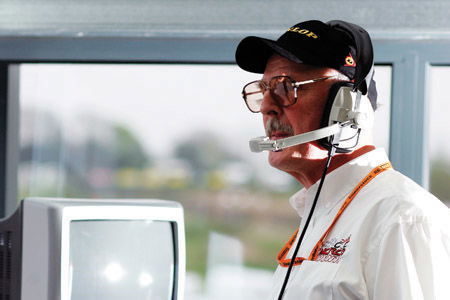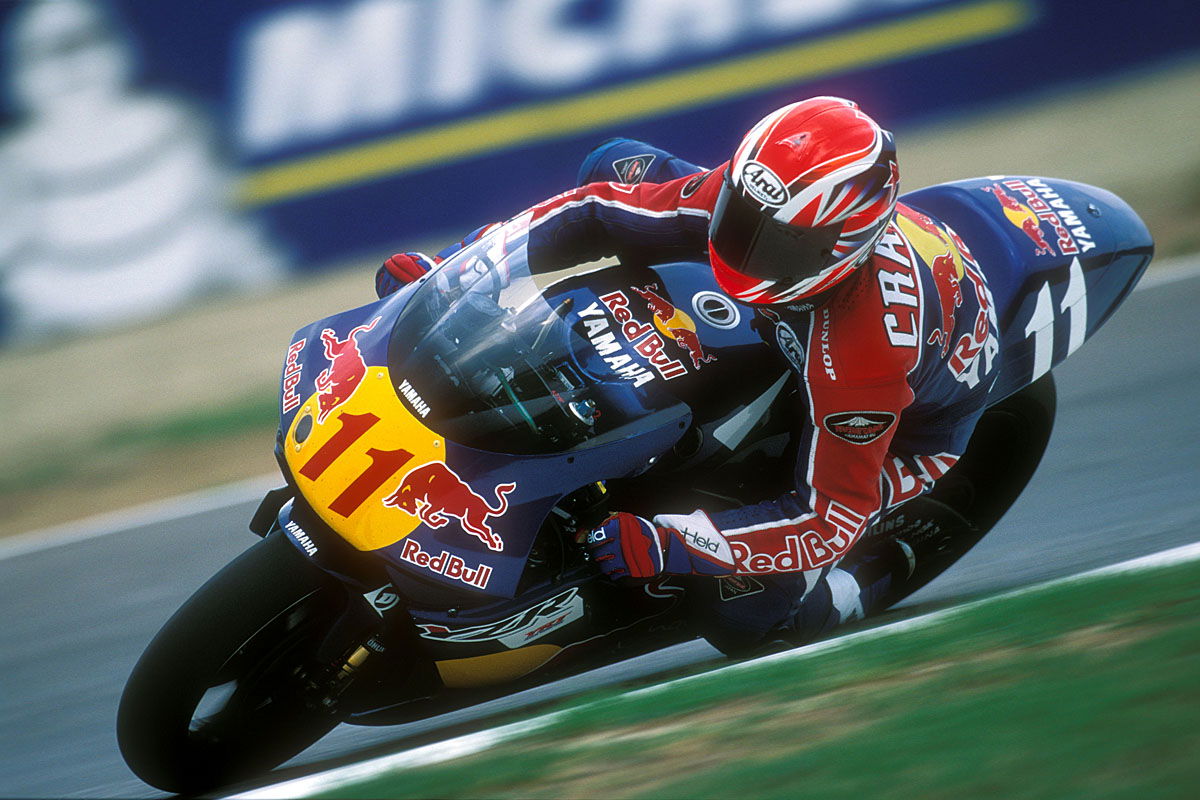10 minutes with... Pete 'Fred' Clarke
You may not recognise his face, but if you've been to a motorcycle race meeting in the last 30 years you'll definitely know his voice. Fred Clarke is the man on the mike


|
How long have you been commentating?
Since 1968. As a boy I cycled the 15 miles to Silverstone to watch the motorcycle races, then an opportunity came to commentate at a grass track meeting. I was put in a car in the centre of the circuit, and when the action started it was like Lawrence of Arabia: the dust was so bad I couldn't see a thing, so I learned early on to blag my way through. Then my friend Eddie Dow asked me to join him in the box for a road race meeting, and flushed with the success of my blind sandstorm grass track commentary I said yes. Eddie and I became a team.
Where did you commentate?
I worked with Eddie at all the Transatlantic Match races during the 70s and 80s, I've commentated on all of the GPs since they came to Silverstone in 1977 to the present day at Donington. Today I'm contracted to do BSB, UK rounds of WSB and MotoGP, and club racing in between. And up until 2003 when dates started clashing with BSB I commentated at the TT for Radio Manx.
Which racers have been your heroes?
My hero was Jarno Saarinen who won the 1972 250 World Championship but was tragically killed at Monza the following year. Then there was Freddie Spencer - in 1983 he won the 250cc and 500cc World Championships. You just don't see that today. My other hero is Steve Hislop. The better you knew him the more you could delve into his character. On his day he could beat the best in the world.
Is it hard to stay impartial?
Not really. The only people I have a bad word to say against are Mick Doohan and Darryl Beattie. They were being paid vast sums to represent Honda at a WSB event with none of the pressures of race day. I asked Mick if he'd come to the box to speak to his fans and he said, "No, I don't think so". I said Daryll, perhaps you'd like to come and say hello? And he said, "No, I don't think so either". They are superb riders but that day they fell very low in my estimation as human beings.
What makes a good commentator?
Being able to translate the action into words instantaneously, not five minutes later. And put lots of enthusiasm into it so the fans are informed and entertained. I try to inject some variety by inviting riders into the box. But no matter how good you are not everyone's going to like you, it's very subjective. The public can be harsh. I've probably commentated on 14,500 races to date - that's a lot of talking - and you're going to get things wrong. But for one fact the spectator knows is wrong, he's probably been hit with 50 correct facts he didn't know.
Is it okay to air your personal opinions?
I'm in control of my destiny. I can talk about what I want - a good dice midfield or something at the back; I can bring facts and figures and humour to it. I've never fancied TV commentating because you have to talk about what's on the screen or the viewer wouldn't know what you're on about.
Do you get excited watching the races?
Oh yes. Amid my notes and memory aids pinned around the commentary box is a little note with 'SS' on it. People often say, 'So you've joined the Nazis?' But it means 'Slower, Softer' because I get so excited by what's happening that my words could become babble. I'm just a race fan and I'm honoured to be on the inside, bagging the best seat in the house and projecting my thoughts on air.
Which are your favourite meetings?
I enjoy BSB and WSB. In MotoGP the riders are increasingly remote. It's an insult to the spectators that the commentator is no longer allowed to speak to the winners, but otherwise the show is superb. Club meetings are difficult because the influx of new names means your performance is a reflection of the homework you've put in. But they're tomorrow's stars and it's very satisfying watching them make it big.
The most exciting race you've worked at?
How long have you got! I could give you the 1979 GP Kenny Roberts/Barry Sheene tussle, or when Mike Hailwood won his last TT. I saw Rossi pass the entire field at Donington to take his first 500cc GP win. But perhaps the most exciting was the last round of the 2000 World Supersport Championship at Brands. Four riders could take the title and through the race positions kept changing. So it was, "St'phane Chambon's the new world champion, no it's Christian Kellner, no it's Paolo Casoli!" In the end Jorg Teuchert took the crown.
Have you ever been lost for words?
No, but I've had some faux pas. I was explaining slipstreaming during a sidecar race and said, "In a classic example of slipstreaming, there we have Mick Boddice breaking wind". That left a funny smell. Then a lad who later got killed, Kevin Wrettom, asked if I could plug his sponsors Loveable Bras. I was saying, well you can make one or two things out of this - if he falls off he'll feel a right tit, he could go into a turn two abreast or there could be a right bust up. It wasn't until Eddie said, "Fred, your microphone's on", that I realised why the paddock was in stitches.
It must be hard when riders get killed
Racing is great 99% of the time, but I've lost so many friends. In 1989 I lost two friends in one race - Steve Henshaw and Phil Mellor. But you rationalise death in your own way. If a racer dies in a race they're still on that lap; it's just a lap they've not yet completed.







